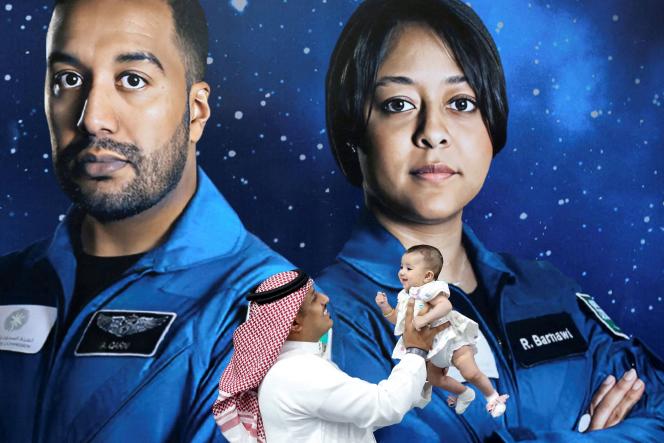MIDDLE EAST LETTER
When Rayana Barnawi boarded SpaceX’s Falcon 9 rocket on May 22 from Kennedy Space Center in Cape Canaveral, Florida, the 33-year-old biologist was delighted to “honor” to be the first Saudi Arabian and Arab female astronaut to join the International Space Station (ISS). With the Saudi fighter pilot Ali Al-Qarni, she embarked for ten days aboard a private mission, organized by the American company Axiom Space, which joined the seven passengers already on board the ISS, including the Emirati astronaut Sultan Al-Neyadi. “If Ali and I can do it, they can do it too “, said the young woman, addressing future generations in the Arab world.
Once again, the Saudi Crown Prince Mohammed Bin Salman Al Saud offered himself, for a few million dollars, a hell of a publicity stunt to promote the image of the kingdom, as part of his post-oil development strategy, Vision 2030. But behind the symbol of sending a woman into space, just five years after the start of reforms that gave new rights to Saudi women, looms a real race for the stars in the Middle East. Long reserved for a handful of nations capable of allocating substantial budgets for the development of space programs, such as the United States, China, Russia, Japan and France, the conquest of space is attracting new players.
“Today’s Arab governments have developed a vision of space fully in line with the 21e century, rooted in the quest for profit, power, image and control”, writes expert Charles W. Dunne for the Arab Center, a Washington-based think tank. The Gulf Cooperation Council (GCC) countries have the ambition to diversify their economy through new technologies and they have the resources to invest in the space industry, for scientific and commercial purposes. According estimatesthis industry could generate more than a trillion dollars per year by 2040, worldwide.
The most ambitious strategy in the United Arab Emirates
In 1985, Arab League countries launched their first satellite, Arabsat. In the same year, Riyadh sent the first Arab astronaut into space, Prince Sultan bin Salman Al-Saud, the son of the current king, Salman, in an American space shuttle. However, it was in the United Arab Emirates (UAE) that the most ambitious space strategy in the region was formalised, thirty years later. After creating its space agency in 2014, the UAE presented, five years later, its national strategy 2030 with the ambition to become a leader in space exploration. To establish this regional pioneering role, the UAE created the Arab Space Cooperation Group in 2019, together with Saudi Arabia, Egypt, Jordan, Bahrain, Algeria, Sudan, Lebanon, Kuwait and the Morocco.
You have 53.22% of this article left to read. The following is for subscribers only.
